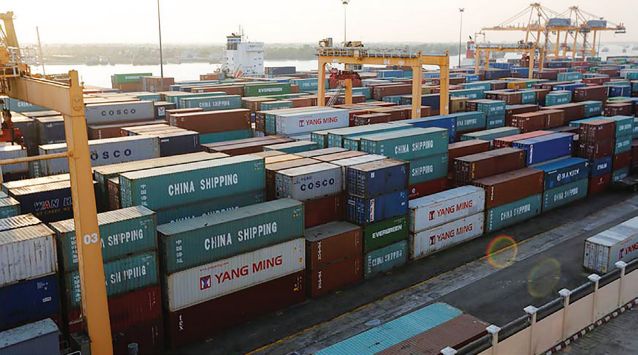Myanmar Kyat has suddenly ap-preciated towards the end of Au-gust and early September, catching many businesses by surprise. From previously trading around 4,400+ Kyats per $, it has appreciated to 4,200 Kyats per $ at the time of writing, representing nearly 5% appreciation in less than a month. Many of them attributed this rise of Kyat to the government stopping imports across the borders, further tightening of import rules and CBM new rules on the use of remittance proceeds from exports.
As per the CBM’s statement, some companies lack up-to-date informa-tion related to exports. Some com-panies heavily rely on third-party agents or their staff, resulting in unauthorised exports under their company name. Despite the remit-tance of export proceeds into the company’s bank account, there is a procedural gap in bank documenta-tion, leading to errors and misstated financial reports. Lack of consisten-cy in bank reconciliation for export proceeds occurs, causing the com-pany to be listed among companies failing to repatriate export proceeds in the prescribed timeline. Conse-quently, the director and the BOD have to face actions and get black-listed. As a result of this, exporters are informed compliance with the repatriation of export proceeds.
Exporters need to obtain a licence through Trade Net 2.0 of the Min-istry of Commerce before signing a sales contract with foreign buyers. The Department of Customs will is-sue an Export Declaration (ED) only after verifying export licence valid-ity and the values of goods shipped as per the sales contract. Myanma Port Authority will issue a Bill of Lading (B/L) after receiving ED and screening the necessary documents. Export earnings must be deposited into the domestic bank accounts within 30 days for the goods to be exported to Asian and within 60 days for other countries outside Asia starting from date of ED num-ber of the Customs Department.
Those exporters who fail to comply with compulsory repatriation rules will face actions (a jail time of less than one year and/or fines).
CBM Action Task Force must con-tact and urge companies in Yangon, Nay Pyi Taw and Mandalay to re-patriate export earnings in the set period. Those companies that fail to meet with the action task force and those that fail to complete bank reconciliation will lead to the tem-porary suspension of the export/im-port licence of the Ministry of Com-merce. The list of those companies will be forwarded to the Ministry of Home Affairs as well.
Repatriation will be waived for goods rejected due to inferior qual-ity and incorrect shipment. Compa-nies can ask for CBM to be removed from the list for cargoes damaged by submitting other necessary docu-ments.
Blacklisting companies and direc-tors lead to banking restrictions, travel bans, loss of government con-tracts, legal prosecution and loss of public trust and company staff. Those companies that want to del-ist need to clear all export proceeds and submit a bank recommendation of settled balances to the CBM.
Furthermore, the CBM will verify the export proceeds balance, iden-tify whether directors listed in the company registration with the Di-rectorate of Investment and Com-pany Administration are serving multiple companies or not, and check whether they pay court-im-posed fines for prosecuted compa-nies. Upon resolution of export re-patriation, the CBM will continue to notify the Ministry of Home Affairs and the departments concerned to remove them from the blacklist.
Prosecution against those compa-nies with overdue receivables will be undertaken only after progressive steps; the respective banks contact them to clarify the overdue receiv-ables, the action task force encour-ages them to repatriate during a set period and blacklisting.















